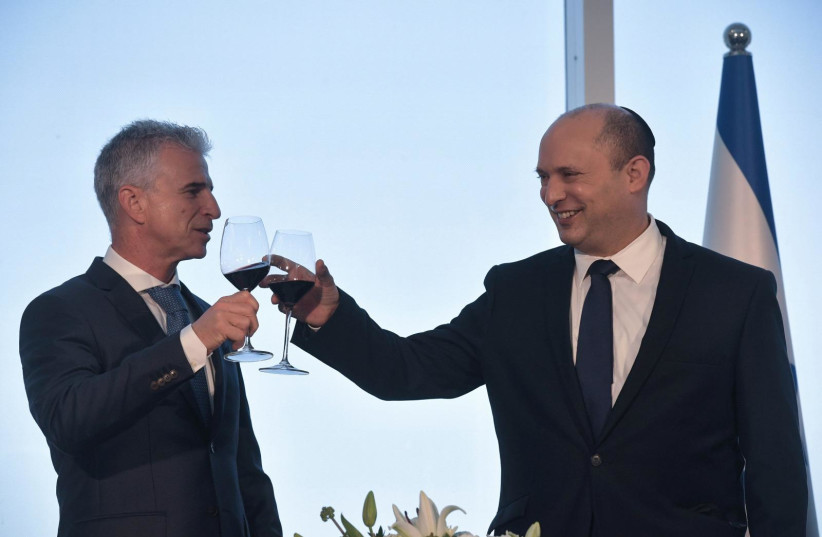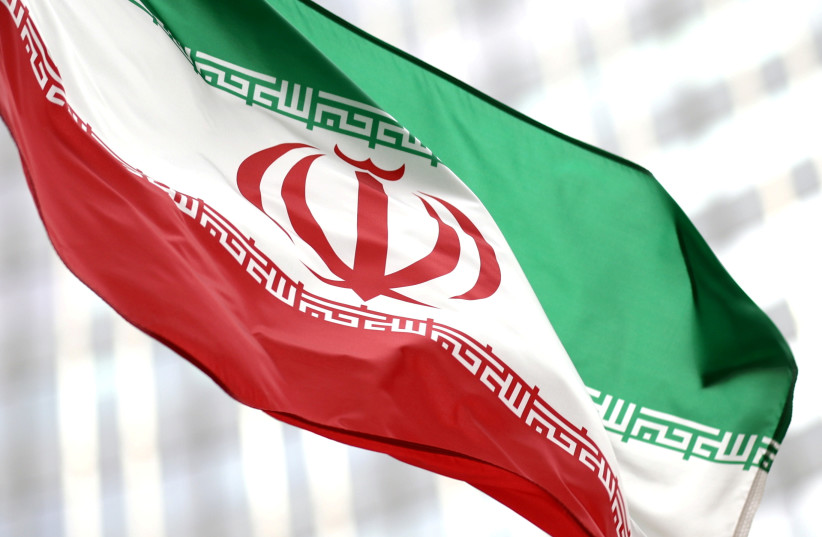by Yonah Jeremy Bob
Can Israel influence the U.S. after Iran nuclear talks? This is what Mossad chief Barnea must now prove.
 |
PM Naftali Bennett and Mossad head David Barnea toast ahead of Rosh Hashana on September 1, 2021.
(photo credit: KOBI GIDEON/GPO)
|
Mossad Director David Barnea is expected to walk through the large
lobby at the CIA Langley’s wall of stars for fallen intelligence heroes
on Monday into one of the most critical and tense meetings of his
career.
The
fateful questions in the balance: Can Israel influence the US after the
shaky first week of Iran nuclear talks, and has Barnea increased or lost
personal influence following his major combative speech last Thursday?
During
that speech, Barnea left no doubts about where he stands in the
internal Mossad debates and the broader global discussions about how to
handle the Islamic Republic.
Former Mossad
chiefs Tamir Pardo, Shabtai Shavit, Efraim Halevy and Danny Yatom have
all, in different ways, said that Israel should try hard to stop Tehran
from getting a nuclear weapon, but it may need to plan for living with
such a reality.
In
contrast, most recently retired former Mossad director Yossi Cohen has
said Israel and the clandestine agency have the power to act
aggressively to prevent Iran from getting the bomb indefinitely.
 Iranian
flag flies in front of the UN office building, housing IAEA
headquarters, amid the coronavirus disease (COVID-19) pandemic, in
Vienna, Austria, May 24, 2021. (credit: LISI NIESNER/ REUTERS)
Iranian
flag flies in front of the UN office building, housing IAEA
headquarters, amid the coronavirus disease (COVID-19) pandemic, in
Vienna, Austria, May 24, 2021. (credit: LISI NIESNER/ REUTERS)One
side wants to prevent a nuclear Iran, but is also concerned about
acting too aggressively in a way that could lead Jerusalem into a
regional war or permanently damage relations with the US.
The
other side believes the Jewish state is a mini-super power that can use
overt or covert force to stop the ayatollahs – the consequences be
damned since a nuclear Iran would be far worse.
Last
week, Barnea said, “Iran will not have nuclear weapons – not in the
coming years, not ever. This is my personal commitment, this is the
Mossad’s commitment.
“Our eyes are open, we are alert, and together with our colleagues
in the defense establishment, we will do whatever it takes to keep that
threat away from the State of Israel and to thwart it in every way,”
said the Mossad chief.
Barnea also sharply criticized the 2015 JCPOA nuclear deal as “terrible” and “barely tolerable.”
Reports
are hazy, but it is also possible that Israel and the Mossad might have
been behind a failed drone attack on Natanz over the weekend.
If
Washington is Jerusalem’s big-brother, Barnea might be worried that CIA
Director William Burns is ready to chew him out for going loud and
public against everything the Biden administration is striving for.
Was
Barnea thinking he would get a more attentive ear by going public with
his criticism of US policy like the previous government of Benjamin
Netanyahu did?
There
is one argument for this: If the US really believes Israel is on the
verge of overt or covert action against Iran, it might push harder for a
deal on Jerusalem’s terms.
But Biden’s policy of wanting to rejoin the JCPOA takes into account many more factors than Israel’s security needs.
One combative speech by a new Mossad chief is unlikely to change that policy, but it could lead to Barnea being ignored.
If
Barnea wanted to be seen as a trusted, non-political, convincing
intelligence provider, wouldn’t he keep his criticisms private?
It
turns out that either the government of Prime Minister Naftali Bennett
is not as different from Netanyahu in publicly fighting with the US over
Iran as some might have thought, or that Barnea himself has chosen
Cohen’s path over the other former chiefs.
Five
or so years from now when evaluating Barnea’s legacy and ability to
convince or be ignored by his US counterparts, last week’s speech might
stand out, and Monday’s meeting might be when he gets some major CIA
pushback.
Yonah Jeremy Bob
Source: https://www.jpost.com/israel-news/analysis-tense-day-for-mossad-chief-barnea-at-langley-687976
No comments:
Post a Comment